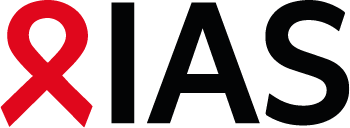Share Abstract
Factors associated with incomplete immunologic recovery in HIV-infected patients with clinical and virologic success after 10 years of antiretroviral therapy: a prospective cohort study
Abstract Content:
Background: HIV
infected patients with virologic suppression and absence of recent clinical
events after 10 years of antiretroviral therapy might have incomplete immune
recovery.
Methods: Prospective APROCO-COPILOTE cohort of patients started on protease inhibitor (PI)-containing regimen in 1997-1999. Evaluation of patients with 10 year follow-up and clinico-virological success. Impact of antiretroviral treatment history on the immunologic response measured at 10 years was assessed by multivariate logistic regression models. Outcome variables were CD4 response (CD4 cell counts > 500/ µl) and complete immunologic response
(CD4 cell counts > 500/ µl and CD4:CD8 ratio > 1).
Results: Among the 610 patients (median follow-up on antiretroviral therapy: 120.3 months (IQR 119.5-121.5), 399 had no clinical progression and sustained virologic suppression during the last year. Median baseline values were : age 38.5 years, CD4 254/ µl, HIV RNA 4.6 log10 c/mL. Initial PI was unboosted indinavir or nelfinavir (77%). Of the 399 patients, 67% had CD4 response and 20% complete immunologic response. In multivariate analyses, factors associated with incomplete CD4 response were older age at baseline (OR 2.62, 95% CI 1.56-4.40), absence of CD4 recovery > 500/µl at month (M)8 (OR 2.39, 95% CI 1.11-5.12) or M12 (OR 4.57, 95% CI 2.23-9.36), not being antiretroviral-naÏve at time of PI-containing HAART initiation (OR 1.89, 95% CI 1.12-3.22) and a higher number of treatment sequences (OR 2.16, 95% CI 1.27-3.67). Factors associated with incomplete immunologic response were non-African origin (OR 0.29, 95% CI 0.11-0.76), low CD4:CD8 ratio at M4 (OR 9.37, 95% CI 1.55-56.6) or M12 (OR 3.72, 95% CI 1.08-12.8), and longer duration of antiretroviral treatment interruption (OR 7.75, 95% CI 1.84-32.7), while baseline CD4 and CD4:CD8 ratio were not predictors of 10 year immunologic outcomes.
Conclusions: In this population having started antiretroviral therapy with first generation PI, long-term immunologic recovery was rarely complete after 10 years of antiretroviral therapy despite clinical and virological success. Failure to achieve long-term immunologic response was not associated with baseline immunological parameters but with immunologic response during the first year of treatment, as well as with less complex therapeutic history and shorter duration of treatment interruptions.
Methods: Prospective APROCO-COPILOTE cohort of patients started on protease inhibitor (PI)-containing regimen in 1997-1999. Evaluation of patients with 10 year follow-up and clinico-virological success. Impact of antiretroviral treatment history on the immunologic response measured at 10 years was assessed by multivariate logistic regression models. Outcome variables were CD4 response (CD4 cell counts > 500/ µl) and complete immunologic response
(CD4 cell counts > 500/ µl and CD4:CD8 ratio > 1).
Results: Among the 610 patients (median follow-up on antiretroviral therapy: 120.3 months (IQR 119.5-121.5), 399 had no clinical progression and sustained virologic suppression during the last year. Median baseline values were : age 38.5 years, CD4 254/ µl, HIV RNA 4.6 log10 c/mL. Initial PI was unboosted indinavir or nelfinavir (77%). Of the 399 patients, 67% had CD4 response and 20% complete immunologic response. In multivariate analyses, factors associated with incomplete CD4 response were older age at baseline (OR 2.62, 95% CI 1.56-4.40), absence of CD4 recovery > 500/µl at month (M)8 (OR 2.39, 95% CI 1.11-5.12) or M12 (OR 4.57, 95% CI 2.23-9.36), not being antiretroviral-naÏve at time of PI-containing HAART initiation (OR 1.89, 95% CI 1.12-3.22) and a higher number of treatment sequences (OR 2.16, 95% CI 1.27-3.67). Factors associated with incomplete immunologic response were non-African origin (OR 0.29, 95% CI 0.11-0.76), low CD4:CD8 ratio at M4 (OR 9.37, 95% CI 1.55-56.6) or M12 (OR 3.72, 95% CI 1.08-12.8), and longer duration of antiretroviral treatment interruption (OR 7.75, 95% CI 1.84-32.7), while baseline CD4 and CD4:CD8 ratio were not predictors of 10 year immunologic outcomes.
Conclusions: In this population having started antiretroviral therapy with first generation PI, long-term immunologic recovery was rarely complete after 10 years of antiretroviral therapy despite clinical and virological success. Failure to achieve long-term immunologic response was not associated with baseline immunological parameters but with immunologic response during the first year of treatment, as well as with less complex therapeutic history and shorter duration of treatment interruptions.
